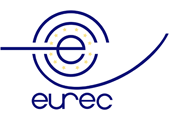menu
- Home
- National Information
- EC-Activities
- EUREC-Activities
- Legislation
- Training Materials
- Literature
- Events
- Newsletter
supported by:

Eurecnet - Training material details
Training material details
Protecting human research subjects. Institutional review board guidebook
Author(s): Penslar, Robin Levin
Document type: Book, Online material, video
Year: 1993
Pages: 480
Source: Political, governmental or other representative body: United States Government Printing Office
URL: http://www.hhs.gov/ohrp/irb/irb_guidebook.htm
Language(s): English
Classification
National background: United StatesCategory: Non-EU Training Material for Research Ethics
Subject areas: Human experimentation
Content: Cultural specifics; Important codes; Legal background; Normative reflections
Issues touched: Autonomy, respect, informed consent, subjects unable to consent, role of repesentatives; Beneficence, non-maleficence, risk for the subject; Justice, benefits/burdens, research without benefit for the subject, placebos/standard therapy; Vulnerable groups, soldiers, prisoners, pregnant women, elderly people; International research, research in developing countries; Social impact of research, economic benefits, risks for third parties Social background of reseach, conflicts of interest, researcher vs. doctor, commercialisation; Ethics committee, research protocols; Publication of unethical trials; Research on animals
Audience: Members of ethics committees
Estimation
Theoretical quality remarks: The guidebook presents a valuable collection of materials for members of ethics committees. The hands-on approach does however not focus on theoretical concepts of research ethics, but rather on a practical approach.Didactical quality: Didactically prepared material
Didactical quality remarks: The guidebook provides recommendations for further reading / material for students in extensive form. Hardly any theoretical or philosophical background is provided.
Overall estimation: recommendable
Estimation remarks: The guidebook is a valuable source of information for members of ethics committees. It provides a good introduction into the main issues of research ethics. However, it focusses on practical issues rather then theoretical concepts. Despite of this lack of philosophical aspects of research ethics the concept of this guidebook could serve as a model for a European training material for ethics committee members.
